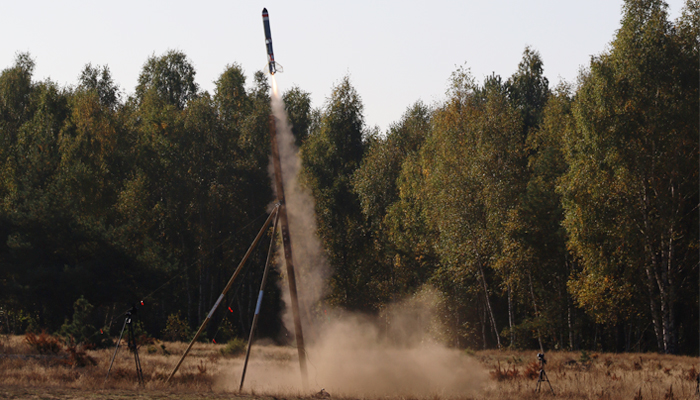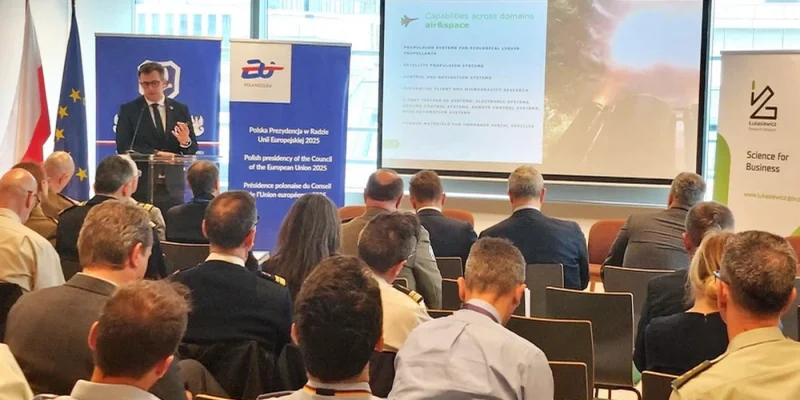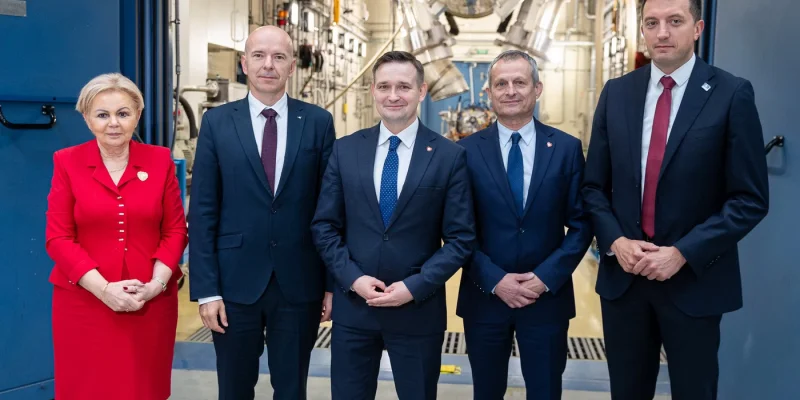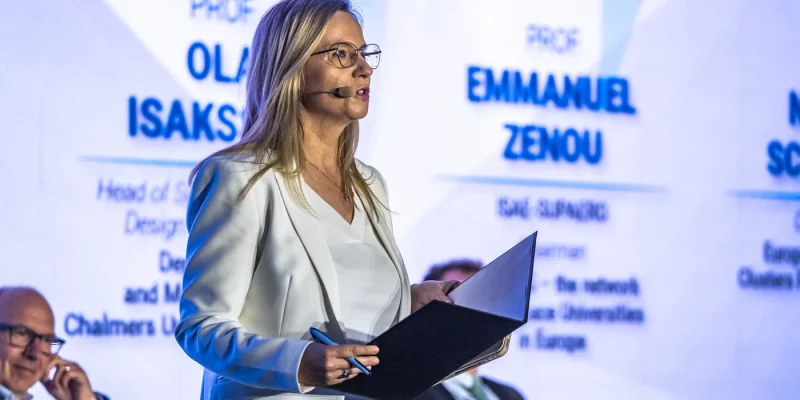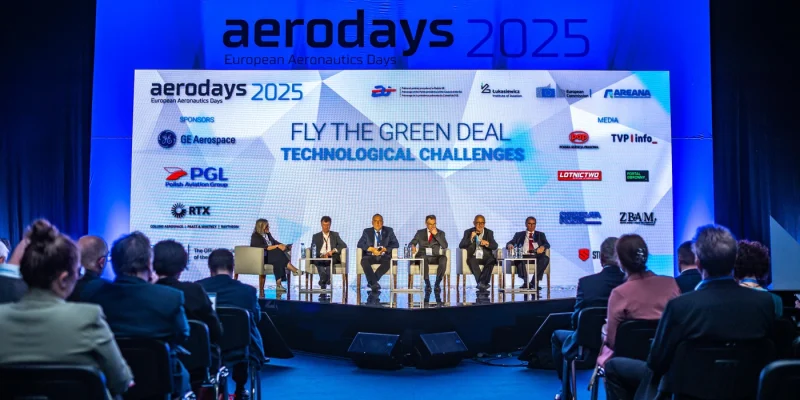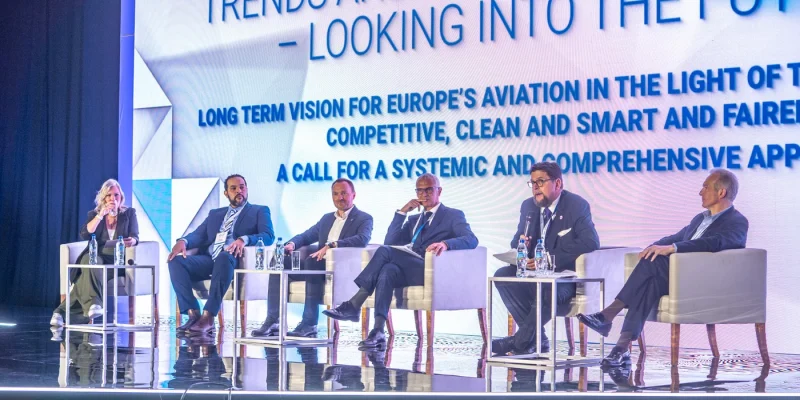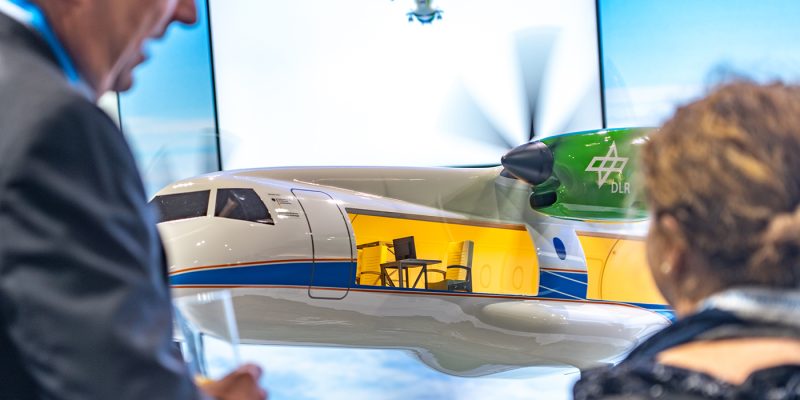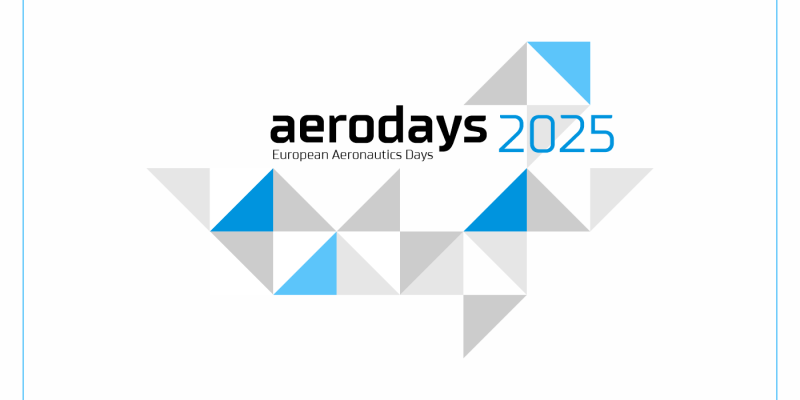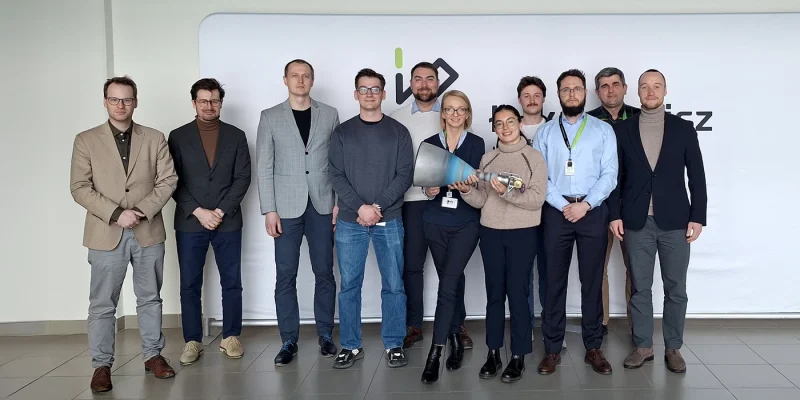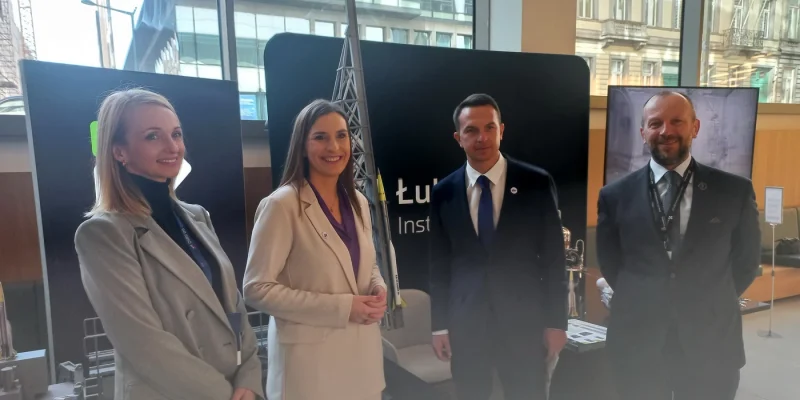A team from the Łukasiewicz – Institute of Aviation conducted the first successful flight test of an experimental rocket powered by a rocket engine using the process of rotating detonation, powered by liquid propellants. The test took place on September 15, 2021 at the testing ground of the Military Institute of Armament Technology in Zielonka near Warsaw. The rocket engine, according to the plan, worked for 3.2 s, accelerating the rocket to a speed of about 90 m/s, which allowed the rocket to reach an altitude of 450 m.
- There is a very wide range of applications for the rotating detonation process – from aerospace propulsion to energy devices.
- Combustion chambers using the rotating detonation process have several significant advantages, they have a simple and compact structure and therefore are lighter and less expensive.
- In Poland, for over 15 years, experimental research on the use of the rotating detonation process in engines has been carried out under the supervision of professor Piotr Wolański.
- The world’s largest companies are currently working on the technology of using rotating detonation. For example, Pratt & Whitney and GE received last year a total of USD 500 million from the US Air Force Research Laboratory for work related to the development of the detonation propulsion.
The successful demonstration of the rotating detonation technology carried out by Łukasiewicz’s engineers is an international success. It was the world’s first use a detonation engine powered by liquid propellants, liquid propane and liquid nitrous oxide to propel a rocket.
To propel the rocket, a cone detonative engine developed by Dr. Michał Kawalec, who also led the team building the rocket and led the experimental flight of this rocket, was used. The supervisor of the team is professor Piotr Wolański, a world-class expert in the field of rotating detonation, who is employed at the Institute.
– The successful launch of the rocket with a detonation engine is a huge success for our team. We are currently at the forefront of research into this technology, but we are also aware that there is a lot of work ahead of us. The application of a rotating detonation can be very wide, from aerospace to energy. Our goal at the moment is to develop further the technology of this process – says Dr. Paweł Stężycki, director of the Łukasiewicz – Institute of Aviation.
The Poles and the Japanese are pioneers in research in the field of testing rotating detonation rocket engines. The latter also carried out a test of their own rocket with a detonation propulsion – the test took place in space, but engine was lifted into space by classical rocket. The Polish rocket test was the world’s first demonstration of successful use of detonation engine that allow flight of the rocket under its own power.
An advantage over classic rocket propulsion systems
The engine used for the rocket propulsion was cooled by both components of propellant. The use of the so-called regenerative engine cooling allows to recover heat from the detonation combustion chamber transferred to the engine walls. This heat thus warms both engine coolants, propane and nitrous oxide, which at elevated temperature are fed into the engine’s detonation chamber. Thanks to this, the heat “losses” to the engine’s walls are recovered and it is possible to achieve greater efficiency of the motor.
The use of the rotating detonation process in the engine compartment allows for greater engine efficiency, because in the detonation process, unlike classic deflagration combustion, the pressure rises (the so-called Pressure Gain Combustion – combustion causing an increase in pressure).
In addition, due to the very high density of energy released, the engine is more compact and, as a result, lighter.
The use of a rotating detonation engine to drive rockets will therefore make it possible to improve the efficiency of propulsion and increase the performance of rockets powered by such engines compared to rockets powered by classic rocket engines.
Rotating detonation in Poland
In Poland, for over 15 years, under the supervision of Prof. Piotr Wolański, experimental research on the process of rotating detonation has been carried out both in terms of its application to turbine and rocket engines, initially only at the Institute of Heat Engineering of the Warsaw University of Technology and for over 11 years also at the Łukasiewicz – Institute of Aviation.
A detailed description of these works is available in the recently published monograph entitled “Research on detonative propulsion in Poland”, published by the Łukasiewicz – Institute of Aviation No.60 Scientific Library.
—
The Łukasiewicz Research Network – Institute of Aviation is one of the most modern research facilities in Europe, with traditions dating back to 1926. The Institute closely cooperates with global tycoons of the aviation industry, such as: GE, Airbus, Pratt & Whitney, and institutions from the space industry, including the European Space Agency. Strategic research areas of the Institute are aviation, space and unmanned technologies. It also provides research and services for domestic and foreign industries in the field of materials, composite, additive, remote sensing, energy and mining technologies.
The Łukasiewicz Research Network provides attractive, complete and competitive technological solutions. It offers a unique system of “challenging” to business, thanks to which a group of 4,500 scientists in no more than 15 working days accepts the business challenge and proposes the entrepreneur to develop an effective implementation solution. At the same time, it involves the highest competences of scientists in Poland and a scientific apparatus unique in Poland. What is most important – the entrepreneur does not bear any costs related to the development of an idea for research work. Łukasiewicz meets the expectations of business in a convenient way. The entrepreneur may decide to contact us not only through the form at https://lukasiewicz.gov.pl/biznes/ but also in more than 50 locations: the Łukasiewicz Institutes and their branches throughout Poland. They will receive the same – high quality – product or service everywhere. The Łukasiewicz potential is focused around such research areas as: health, intelligent mobility, digital transformation and sustainable economy and energy.


